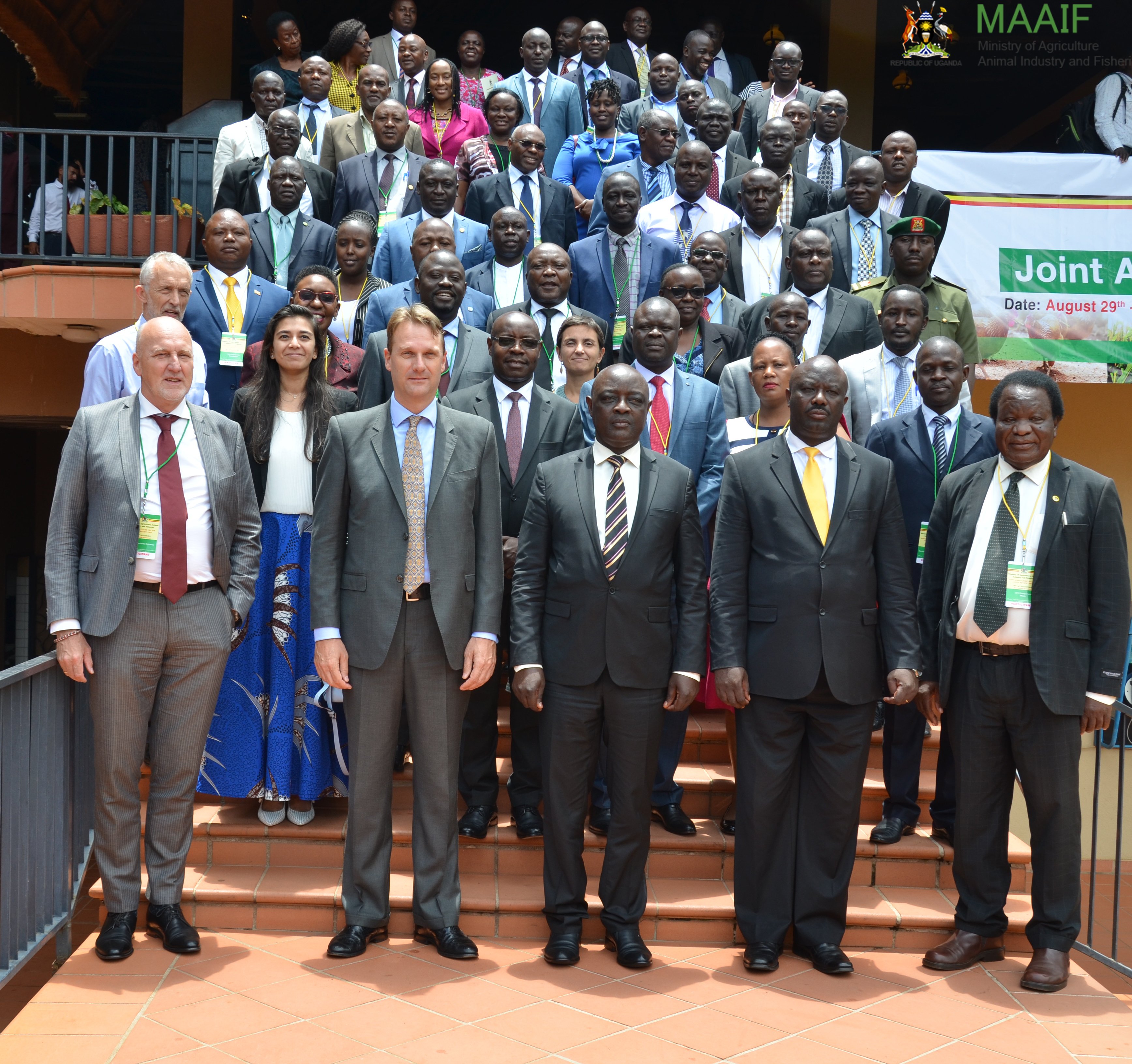Piecemeal interventions and poor coordination among institutional actors in the Agriculture sector have been blamed for the lack of a robust agro-industrialization policy to achieve Uganda’s development targets.
Speaking at the 9th Joint Agricultural Sector Annual Review held at Speke Resort Munyonyo, Dr. Madina Guloba, a senior research fellow at the Makerere -based Economic Policy Research Centre noted that the dis-jointed interventions by the numerous state and non-state actors in the Agri–industrial sector were making it difficult to execute a systematic, nationally transformative policy agenda, in line with Uganda’s development needs.
“Poor coordination of (sector) actors complicates the consolidation of institutional efforts towards the development of a common agro-industrial goal, further undermining the ability of already meager resources to deliver needed interventions,” she said.
Presently, Uganda has several agencies involved at various stages of the agri-business value chain. These include; the National Agricultural Research Organization (NARO) and the Uganda Industrial Research Institute(UIRI) at research level, the National Agricultural Advisory Services (NAADs) and Operation Wealth Creation for inputs supply and implementation, the Uganda Development Cooperation and Export Promotions Board at investment and marketing level respectively, not to mention the parent ministries of Agriculture, Animal Industries and Fisheries, and that of Trade, Industry and Cooperatives, who’re charged with overall policy formulation and oversight.
There are also crop-specific agencies like the Uganda Coffee Development Authority and the Cotton Development Organization, whose mandates cut across the regulation of the coffee and cotton sectors respectively, and the promotion of coffee and cotton exports.
Highlighting the government’s economic growth strategy for the financial year 2019/2020, Finance Minister Matia Kasaija noted that the government would “aggressively” pursue agro-processing and the development of product value chains to create high-value jobs and expand the industrial base of the economy.
“Uganda’s industrialization in future has accordingly been designed on two strategic pillars; the setting up of fully serviced industrial parks across the country to house medium and large-scale industries, and two, the development of product value-chains which link nucleus entrepreneurs to out-grower farmers to promote agro-processing for value addition,” Kasaija said, at the budget reading in June.
But Madina says, there has yet to be a specific major policy shift especially in the direction of developing product value chains. According to the United Nations Industrial Development Organisation (UNIDO), Uganda enjoys a positive balance of $420million in agro-products’ trade, importing $1.07billion worth of good, while exporting $1.5billion in 2017. But Madina insists, Uganda can do much better if it prioritizes a few specific commodities and products.
She pointed out that while for example Milk, coffee, Tea and Fisheries have the potential to become high-impact export products, dairy, cotton, vegetable oil, and beef by-products should be the target of an import substitution policy, calling for increased public investment in high-value agro-manufacturing. “There’s, for example, no reason why 95% of our lint should still be exported, when we import millions of dollars- worth of cotton by-products,” she said.
She said that achieving such targets required a deliberate policy from government to protect domestic industries especially at infancy, and availing them affordable and patient credit, noting that Uganda remained a poor performer on this aspect (credit access). According to UNIDO, by 2016, only 6.3% of small-scale industries had loans or lines of credit in Uganda compared to 44.1 % in Kenya and 11.1% Tanzania.
“But it also requires building strong traceability systems and linkages between producers and manufacturers to guarantee product quality and standards, to secure and safeguard local and international markets,” she said.
The Joint Agricultural Sector Review is an annual event organized by the Ministry of Agriculture, Animal Industries and Fisheries in collaboration with development actors in the Agriculture sector, to review the sector’s performance against set targets and suggest corrective proposals going forward. The event has been organized since 2011, and this year’s Review took place from 28th-30th August 2019, at the Common Wealth Resort, Munyonyo.
